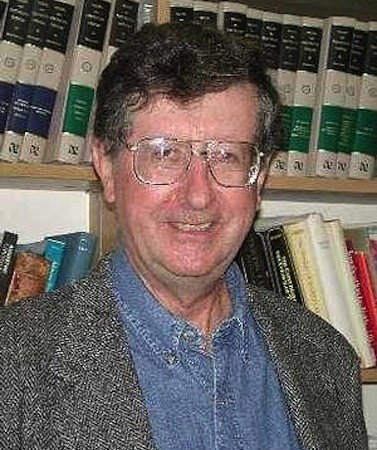Teaching
Research
Research Information
I like to explore the transformations of intellectual resources between Christianity and its cultural contexts. My research focuses primarily on the transformation of the Western culture in the fourth century of the Common era.
Traditionally scholars have credited the legislative agenda and the public building programme of the Emperor Constantine for the rapid emergence of Christianity from the status of persecuted community to one which enjoyed toleration and then imperial protection and even privilege. This caused considerable changes for the Christian community.
Recently social historians have been exploring three patterns of Christian response to the new situation. The first response was the enthusiastic appropriation of the public policy and ideology by Christians, represented particularly by Eusebius of Caesarea. Another response, whose origins pre-dated the fourth century but expanded considerably, was the ascetical movement. In some significant ways this represents a rejection of public social values. The most recent studies on this approach have dealt with both the role of women and issues of sexual morality in the writings of Jerome and Ambrose.
My own research deals with a third response. Some Christians sought to present Christian life within the social and cultural context of Late Antique Rome. These people employed the cultural resources and values and adapted them to explore issues of personal experience and development as well as the nature and validity of social values.
I myself have examined the contribution of the educational programme shared by Christians and secular people of this period. At the heart of this educational enterprise was a set of canonical texts for both the grammatical and the rhetorical schools. The methods for interpreting these texts can be found in extant commentaries and collections of scholia. During this period, as well, the canonical texts of Christianity were receiving their definitive form and different schools of exegesis were emerging.
I have examined the role of communally sanctioned texts in the construction of two Christian autobiographies from this period. I published an article on Augustine’s Confessions (397) in 1994 and another on Hilary of Poitiers’ (357) Introduction to his De Trinitate in 1997. I am currently working on the influence of communally sanctioned texts on the social thought of these same two figures. Two preliminary papers are in the hands of editors and are expected out in 1999.
In addition, I am interested in the role of tolerance among the three Western Religions of Judaism, Christianity and Islam. The history of misunderstanding and active hostility is well known. The current rise of fundamentalism in all three poses serious threats to social and political stability in many parts of the world.
I am designing a volume of papers to examine a) the role of tolerance in the canonical texts of all three of these religions and then b) some later historical models of deep respect and active collaboration among these three religious communities.
